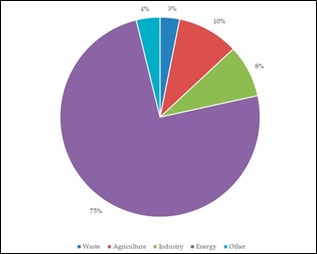Navigating Agricultural Challenges in the Era of Climate Change: Insights, Innovations, and Sustainable Solutions
Keywords:
GHG Emissions, Livestock Farming, Horticultural Crops, Climate MitigationAbstract
Agriculture is at the forefront of climate change dynamics, contributing significantly to greenhouse gas emissions while grappling with the profound impacts of environmental shifts. Greenhouse agriculture, though enhancing crop efficiency, presents energy intensive operations contributing to increased greenhouse gas emissions. Mitigation strategies involve transitioning to renewable energy sources and adopting Thermal Energy Storage systems. Sustainable agricultural practices gain traction, driven by research initiatives utilizing stable isotope techniques. Challenges posed by monoculture and extensive chemical fertilizer use underscore the need for circular economy principles and mixed farming approaches. Precision Agriculture and Precision Livestock Farming integrated with Decision Support Systems offer advanced solutions for optimized resource utilization and reduced emissions. The study delves into greenhouse gas emissions, identifying methane and nitrous oxide as major contributors to agriculture. Global efforts to reduce methane levels aim for a 45% reduction by 2030, crucial for climate mitigation. The Solution4Farming platform, utilizing AIoT, streamlines GHG emissions management, emphasizing the importance of precise data collection and user friendly interfaces. Challenges in accurately measuring emissions call for sophisticated DSS tools, aligning with IPCC methodologies. The agriculture sector's contribution to total greenhouse gas emissions in the EU is analyzed, highlighting reductions since 1990. Energy consumption in EU agriculture shows a 6% increase in associated emissions from 2004 to 2018, with variations among member states. Emission structures reveal diesel oil as a predominant contributor. FADN data categorize farms based on emissions, emphasizing animal production as a significant source. Fuels dominate emissions from energy inputs, particularly in horticultural crops. The research concludes with recommendations for future enhancements to the Solution4Farming platform, emphasizing global relevance, AI advancements, and IoT applications. The study underscores the importance of innovative strategies, precision technologies, and sustainable practices in addressing the complex challenges posed by agriculture in the context of climate change.


















